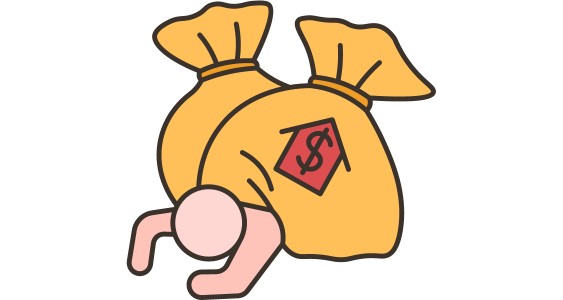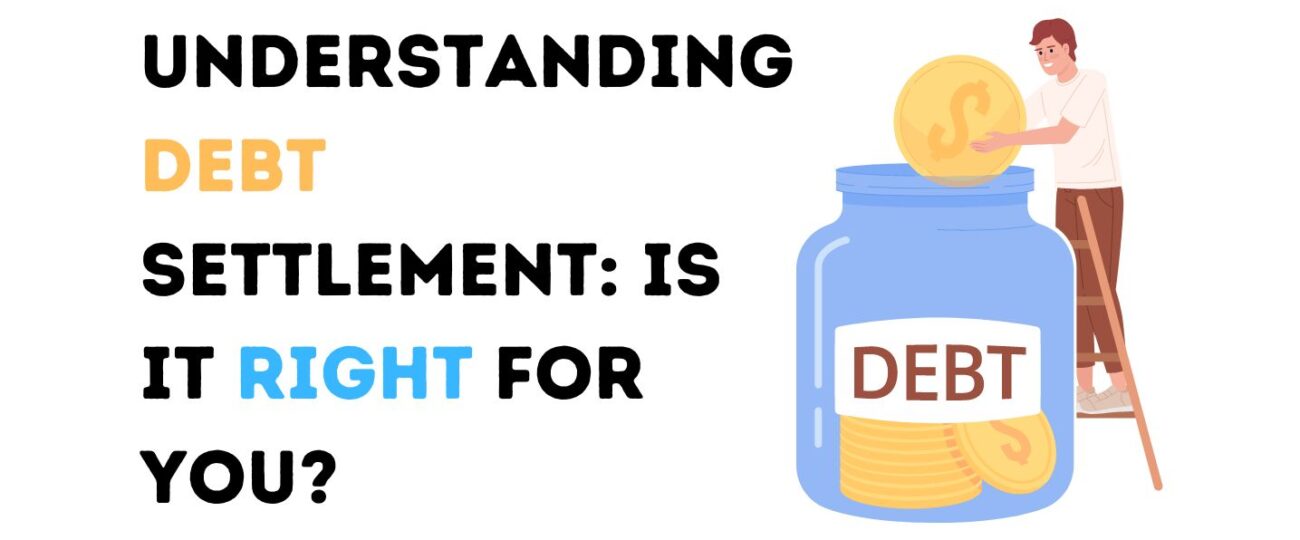Debt settlement, often seen as a last resort for heavily indebted individuals, involves negotiating with creditors to pay off a debt for less than what is originally owed.
This article provides a comprehensive exploration of debt settlement, how it stands apart from other debt relief strategies and identifies who might benefit the most from this approach.
What Is Debt Settlement?
Debt settlement is a financial strategy where you negotiate with creditors to settle a debt for a lump sum that is less than the total amount due.
This process typically involves using a third-party debt settlement company that negotiates with creditors on your behalf, although it’s also possible to undertake this process on your own.
How Debt Settlement Differs from Other Debt Relief Options

Debt settlement is distinct from other debt relief solutions such as debt consolidation or credit counseling in several key ways:
- Debt Consolidation: This involves taking out a new loan to pay off multiple debts, combining them into one single payment with a potentially lower interest rate. Unlike debt settlement, consolidation does not reduce the total principal amount owed.
- Credit Counseling: This strategy includes receiving guidance from a nonprofit credit counseling agency to manage your debts better and set up a debt management plan (DMP). While this can reduce interest rates and fees, it also does not reduce the total principal amount.
- Bankruptcy: As a more drastic measure, bankruptcy can clear some or all debts, but it has long-lasting negative impacts on your credit score. Debt settlement can also negatively affect your credit but might not be as severe or long-lasting as bankruptcy.
Who Might Benefit from Debt Settlement?
Debt settlement might be a suitable option under certain circumstances:
- High Unsecured Debt Levels: It is most effective for individuals with a large amount of unsecured debt, such as credit card debt, who cannot afford to make minimum payments and are facing the prospect of default or bankruptcy.
- Resources to Make Lump-Sum Offers: To settle debts, you often need access to a significant amount of cash to make lump-sum offers to creditors.
- Seeking to Avoid Bankruptcy: For those trying to avoid the ramifications of bankruptcy, debt settlement offers an alternative that can reduce overall debt load without the legal implications of declaring bankruptcy.
Considerations Before Choosing Debt Settlement
- Impact on Credit Score: Settling your debt for less than you owe can negatively impact your credit score. It’s important to consider this consequence, as it can affect your ability to secure loans in the future.
- Potential for Increased Debt: If not managed properly, the process can lead to additional debt. This can happen if the full debt is not settled or if fees associated with settlement services escalate.
- Taxes: Forgiven debt through a settlement can be taxable. It’s crucial to understand how this might affect your personal tax situation.

Conclusion
Debt settlement can be a viable strategy for reducing debt but it’s not suitable for everyone. It involves significant financial decisions with lasting consequences. Understanding the full implications of debt settlement is crucial before embarking on this path.
For those considering this option or seeking more tailored financial advice, consulting with experts like those at cisdrs.com can be invaluable.
They can provide guidance on whether debt settlement is right for you based on your unique financial situation and help navigate the complexities of managing and negotiating your debts effectively.
See Also: Tips For Staying On Top Of Your Finances As A College Student










